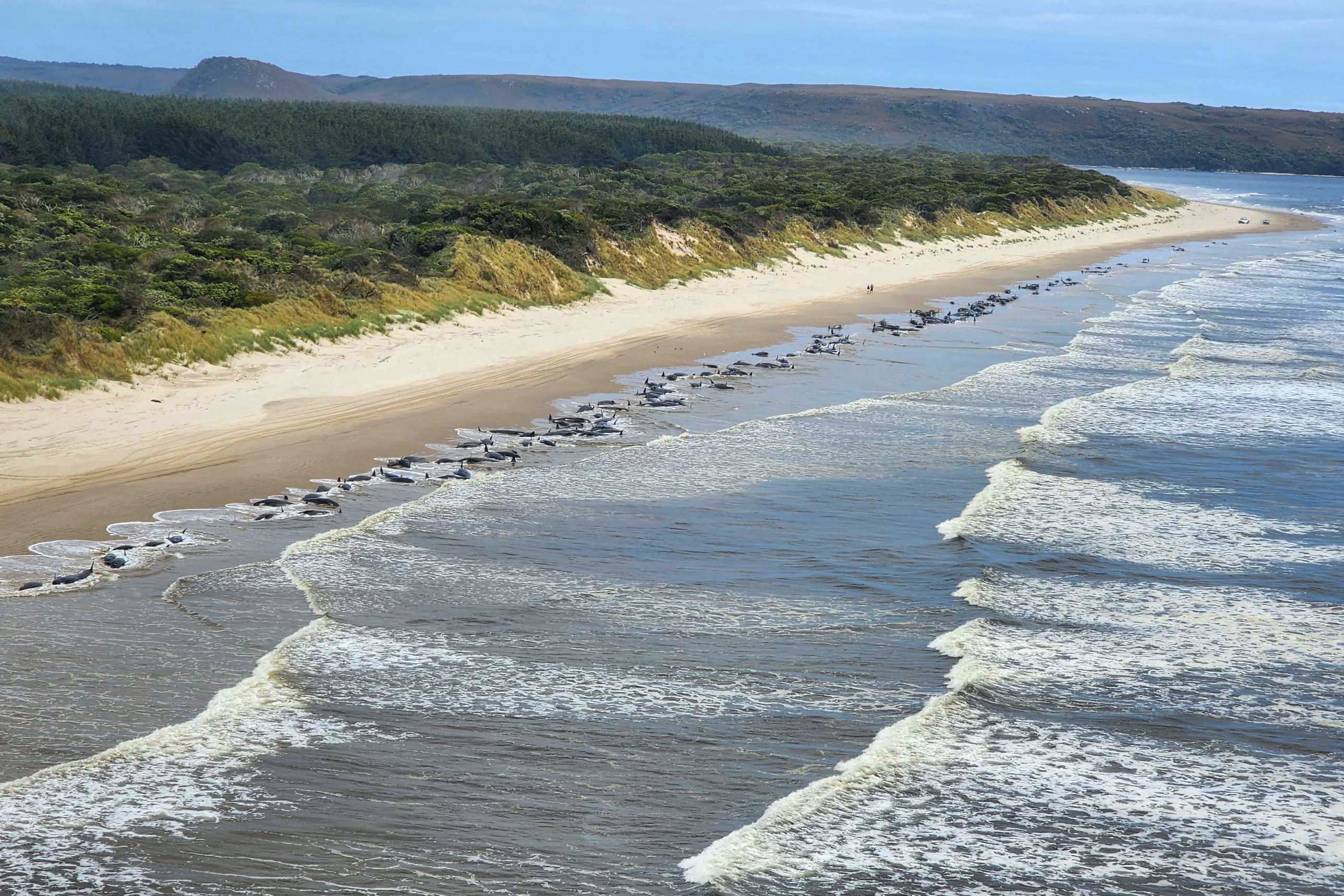Some 230 whales beached in Tasmania; rescue efforts underway
About 230 whales are stranded on Tasmania’s west coast, just two days after 14 sperm whales were found beached on an island nearby

Your support helps us to tell the story
From reproductive rights to climate change to Big Tech, The Independent is on the ground when the story is developing. Whether it's investigating the financials of Elon Musk's pro-Trump PAC or producing our latest documentary, 'The A Word', which shines a light on the American women fighting for reproductive rights, we know how important it is to parse out the facts from the messaging.
At such a critical moment in US history, we need reporters on the ground. Your donation allows us to keep sending journalists to speak to both sides of the story.
The Independent is trusted by Americans across the entire political spectrum. And unlike many other quality news outlets, we choose not to lock Americans out of our reporting and analysis with paywalls. We believe quality journalism should be available to everyone, paid for by those who can afford it.
Your support makes all the difference.About 230 whales have been stranded on Tasmania’s west coast, just days after 14 sperm whales were found beached on an island off the southeastern coast.
The pod, which is stranded on Ocean Beach, appear to be pilot whales and at least half are presumed to still be alive, the Department of Natural Resources and Environment Tasmania said Wednesday.
A team from the Marine Conservation Program was assembling whale rescue gear and heading to the area, the department said.
A resident told the Australian Broadcasting Corp. the whales were visible near the entrance to Macquarie Harbour and described the stranding as a “massive event."
David Midson, general manager of the West Coast Council, urged people to stay clear.
“Whales are a protected species, even once deceased, and it is an offence to interfere with a carcass,” the environment department said.
Griffith University marine scientist Olaf Meynecke said it's unusual for sperm whales to wash ashore. He said that warmer temperatures could also be changing the ocean currents and moving the whale’s traditional food sources.
“They will be going to different areas and searching for different food sources,” Meynecke said. “When they do this, they are not in the best physical condition because they might be starving so this can lead them to take more risks and maybe go closer to shore.”
Fourteen whales were discovered Monday afternoon on King Island, part of the state of Tasmania in the Bass Strait between Melbourne and Tasmania’s northern coast. The department said it is not unusual for sperm whales to be sighted in Tasmania.
Two years ago, about 470 long-finned pilot whales were found beached on sandbars off Tasmania’s west coast in the largest mass-stranding on record in Australia. After a weeklong effort, 111 of those whales were rescued but the rest died.